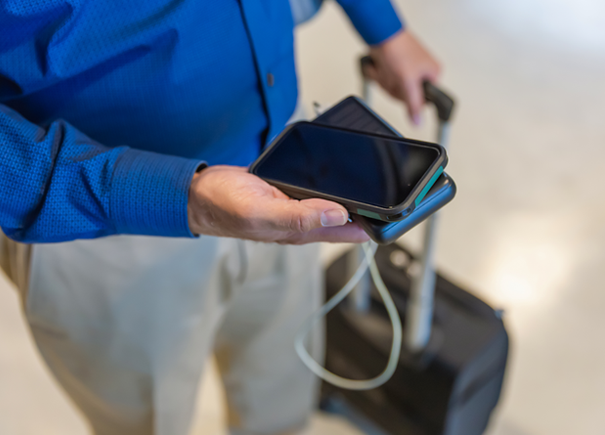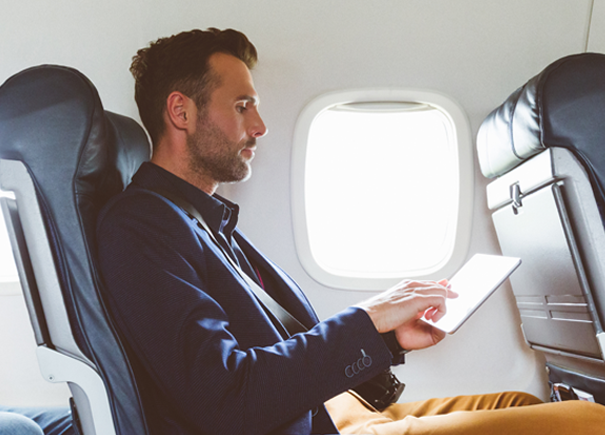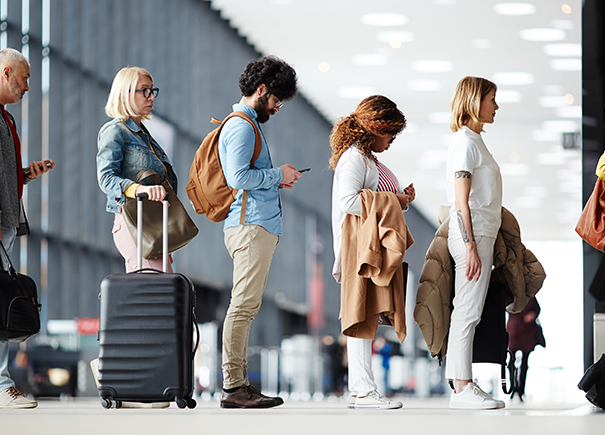Five ways to combat loneliness on a business trip

Business travel is an exciting prospect, but it can sometimes be an isolating experience, and a challenge that can be overlooked when travelling for extended periods is the significant toll loneliness can take during an extended business trip.
According to data from Corporate Traveller, the specialist SME division of the Flight Centre Travel Group, Australian professionals spend almost double the length of stay compared to the global average work trip, clocking up an average of six nights away per trip.
With this record rate of nights away from home and loved ones, it is essential to address the loneliness that can accompany these journeys.
According to the Australian Institute of Health and Welfare one in four Australians feel lonely, which has an impact on a person’s mental health, and their ability to perform tasks and be productive.
The rate of loneliness ranks even higher for those undertaking corporate travel, with a recent study by insurance company World Travel Protection finding feelings of anxiety, stress, exhaustion and homesickness were reported by one third of survey responses.
It was especially prevalent among male business travellers.
Corporate Traveller’s Australia-based Global Managing Director Tom Walley said travelling by oneself can sometimes exacerbate the feeling of isolation or loneliness, so prioritising social contact should be a consideration of the travel agenda.
“A big purpose behind corporate travel is to connect colleagues, clients, customers and business partners with one another, and there are several ways which we encourage customers to embrace connection, even when they’re away from family and friends,” Mr Walley said.
“When you’re travelling frequently, you can tend to revert to locking yourself in your hotel room at the end of an exhausting day, or some might feel it’s not appropriate to mingle outside of ranks or business hours.
“In Australia, we face the added challenge of being so spread out, and with the work travel space so heavily dominated by fly-in fly-out (FIFO) workers in often remote destinations.”
The WA mental health commission found as many as one third of Australia’s estimated 100,000 FIFO workers experience high or very high psychological distress.
To help beat the feeling of loneliness, Corporate Traveller’s Tom Walley has given his top five tips for cultivating connection and avoiding disconnection while travelling for work:
1. Embrace Bleisure Travel
Australian business travellers are increasingly blending work with leisure, a growing trend dubbed ‘bleisure’.
Mr Walley highlighted the importance of flexible working arrangements that accommodate bleisure feasibility, saying: “By extending trips to explore destinations beyond your work commitments, professionals can recharge and combat loneliness. Extending trips for themselves or having family join them after work-related travel is a great way to build upon health and wellness in the workplace. In the World Travel Protection Survey, nearly 28 per cent of frequent travellers said having the flexibility to add personal time to explore a destination or connect with friends nearby significantly reduced burnout and stress.”

2. The buddy system
Mr Walley said forward-thinking companies were pairing up solo travellers headed to the same destination, so they have a familiar face to connect with.
“Having a travelling colleague to debrief the day’s events over a drink or meal can be huge. We’ve seen instances of companies mandating that managers or travel teams regularly check in, whether by email, text or call, to ask how the traveller is feeling and if they need any support. It’s a low-effort gesture that signals you’re seen and valued.”
Mr Walley suggested that even staying at the same accommodation for both work and leisure can foster connections. “Whether it’s networking with colleagues, or exploring local culture, seek opportunities to connect with others during your trip,” he said.
3. Leverage Technology
The business travel expert also noted the ability to video call spouses, kids or even just the family dog helps sustain those crucial bonds back home; ensuring travellers have access to data to dial in is essential.
“Remote working capabilities play a significant role in business travel, so use those functionalities to maintain relationships virtually with loved ones back home. Additionally, explore local social media groups or networking events to meet like-minded professionals,” Mr Walley said.
4. Explore the Local Scene
Break free from the hotel room. Discover local attractions, restaurants, and cultural experiences. Mr Walley said: “Taking the opportunity to combine business with pleasure allows travellers to enjoy a destination while saving on expenses. Travel management platforms can even build this breathing room right into the itinerary.”
5. Prioritise Well-Being
Loneliness affects mental health. Prioritise self-care by getting enough rest, staying active, and maintaining a healthy routine. Mr Walley’s insights underscore the link between extended trips and overall health and wellness.
“The emotional toll of business travel is real and a good way to counter loneliness is to be ready for it from the beginning. Having a plan makes loneliness much easier to deal with when it comes knocking. Be proactive about maintaining your normal routines as much as possible. Even squeezing in your usual workout can give you a glimpse of your home life, which can be very grounding,” Mr Walley said.
Risk management strategies can also relieve stress, with 24/7 medical guidance, security intelligence, emergency resources and even mental health support tailored to the singular stresses of road life.



